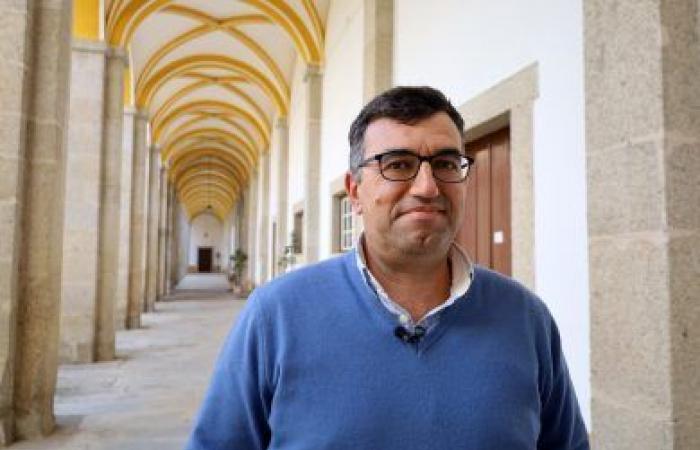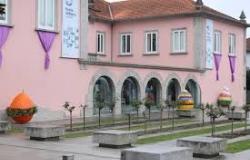«Young people must increasingly assume their role in politics», says Nuno Camelo
Lisbon, 01 Apr 2024 (Ecclesia) – The director of the National Department of Youth Ministry (DNPJ), of the Catholic Church, considered the inclusion of a Ministry of Youth in the new Government of Portugal, which takes office this Tuesday, to be of “great significance”. fair.
“It is an important sign because it is the recognition that youth, which is the future today, is already the construction of a future that happens in this time of young people’s lives, is being taken into account here and this can be a sign of that together with the youth of this country we can find solutions that will obviously include the issue of education, the issue of work and the issue, for example, also of housing”, said Nuno Camelo to the ECCLESIA Agency.
For this person in charge, “establishing a life today” is increasingly difficult and young people tend to take longer “to start that life because the conditions are never ideal”, which is why the Ministry of Youth and Modernization must have take into account these concerns “very close to the anxieties and projects of young people”, and a minister who is a young woman, “aged 34”, “must keep this in mind”.
After the elections on March 10, the XXIV Constitutional Government – the Prime Minister and his ministers – will take office this Tuesday, at the Ajuda National Palace.
The government structure includes the Ministry of Youth and Modernization, which will have Margarida Balseiro Lopes, leader of the Social Democratic Youth, as minister between 2018 and 2022.
“Regardless of what may happen in this Government and how long it may be in office, because the political situation is troubled, but also for that reason, I think this is an interesting sign, at least, that the new Government and the new Prime Minister minister are concerned about reaching young people”, said Nuno Camelo, considering that “a ministry for youth that integrates “the aspect of modernization” has great meaning.
The director of the department dedicated to young people at the Portuguese Episcopal Conference (CEP) observes that young people, who “have been away from politics” but seem to have “awakened a little to the sense of voting”, to assert “their rights, their their aspirations, the real difficulties of everyday life”, and it seems that, “apparently, until now, the political cycles of governance have not been able to respond”, which has meant that young people “have also become demotivated, over time, with politics and with its political intervention and in the construction of the city, in the construction of the country”.
Young people are regaining, it seems, this desire to have an active voice in politics and I think this government can also contribute to that. In fact, I think that all parties should contribute to this, reach out to young people because effectively this discredit in politics and this lack of interest means that young people’s issues have not been valued until now, and have not been heard, or have not been resolved.”
In relation to the role that young people should have in political responses for Portugal, the interviewee considers that “they must, increasingly, assume their role in politics and in the constitution of politics”, therefore, the creation of the Ministry of Youth and Modernization “It could be a good driver for this to happen.”
Regarding priorities and essential areas for the first months of governance, Nuno Camelo emphasizes that this ministry must “seek to meet the challenges that young people face today”, namely in the aforementioned areas of education, housing, work, but also “the issue of mobility”, and must help young people to create conditions to “establish themselves in life, to start their life”, and cannot remain “indifferent to this, if it does not lose its reason for existence”.
“This is a bit like the story of ‘let’s call young people to the Church’: there is no need to call young people to the Church, they are already in the Church, they are the Church, and young people are also politics, they are the your country and they are your future, they are the now”, he explained, considering that the two lines are a little similar, “politics and faith”.
For the director of the National Department of Youth Ministry, the Church “can also provide the impetus” and highlights that it has “invested heavily in listening to young people, playing its main role in this issue of building today and tomorrow”.
According to Nuno Camelo, the experience of World Youth Day (WYD) in Portugal, the international edition that took place in Lisbon, from 1 to 6 August 2023, also brought us to the political path, to the path of everyday life. day of cities, regions and dioceses, “a great youth movement, a great affirmation of young people”,
This could also have been a driving force to hold our politicians more accountable and make them more aware of the fact that young people are there, they make noise, they have inspirations and dreams and they have many difficulties. And it was also proven with Jornada, for example, that they can build tomorrow now, with their own hands, making a difference, many of them, the overwhelming majority, with a volunteer service. And I think this also shows a great capacity that young people have to renew themselves, to modernize themselves, and to build with what they have at hand”.
For this person in charge, the Ministry of Youth and Modernization must seek to “cross its political activity and planning” with these youth demonstrations that exist across the country, where the youth of the Church “cannot fail” to be present.
The director of the DNPJ shared the “hope” that some of the projects they have in this 2023-2026 pastoral cycle, and which they launched as “bets”, may also eventually be worked on with this Ministry, “or at least help to create a focus on these areas”, such as young people displaced for study or work, “such as the internal network for finding a first job”, the involvement of young people who welcome many young people, “host families who welcome displaced young people”.
‘Fátima Jovem’ 2024, the national pilgrimage of young people to the Marian sanctuary of Cova da Iria, is the next initiative of the DNPJ, on the 4th and 5th of May.
CB/OC
Tags: ChurchPortugal Youth Ministry important sign director National Department Youth Ministry
--




